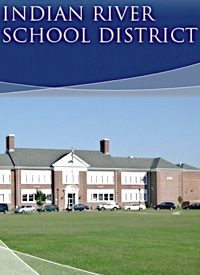
A federal appeals court has ruled that it is unconstitutional for a Delaware school district to include prayer as part of its regular school board meetings. Prayer has been a part of Indian River board meetings since the school district was founded in 1969, and in 2004 the district formalized a policy in which board members rotate in leading a prayer or moment of silence to “solemnify” the meetings. The policy stipulates that the prayers may be either sectarian or non-sectarian, and may be “in the name of a Supreme Being, Jehovah, Jesus Christ, Buddha, Allah” — or some other religious entity.
However, the district was dragged into court over the policy when two families complained that the prayers violated the First Amendment’s supposed separation of church and state. Associated Baptist Press (ABP) reported that the case “stemmed from a lawsuit originally filed in 2005 by a Jewish family claiming they were harassed after speaking out against religious practices including prayers at graduations and board meetings. They claimed their daughter’s graduation was ruined when she, the only Jewish person in her class, had to listen to a minister pray in Jesus’ name.”
The plaintiffs also claimed that their son, a sixth grader, had been called “Jew boy” and told he was responsible for Christ’s death. The harassment prompted the family to sell its home, move, and enroll the son in a private school.
As reported by ABP, “Most of the case was settled in 2008, but the issue of the school board’s prayer policy was left unresolved for a second set of parents who joined the case after it was originally filed.”
While a lower federal court had ruled in favor of the school district, allowing the continuation of the prayers, on August 5 a three-judge panel of the U.S. Court of Appeals for the 3rd Circuit in Philadelphia overturned that decision and ruled that the prayers must stop.
As reported by the website Education Week:
The court said the key question was whether the school board’s meetings and prayers were closer to the legislative prayers upheld by the U.S. Supreme Court in the 1983 case of Marsh v. Chambers, or more like other school events in which the high court’s cases have limited school-sponsored prayers.
Noting that students were often in attendance at board meetings, the court “concluded that the board meetings are closer to other school events, such as graduation ceremonies, in which school-sponsored prayers have been held to have a coercive effect on students,” reported Education Week.
“Regardless of whether the board is a deliberative or legislative body,” the judges explained in their opinion, “we conclude that Marsh is ill-suited to this context because the entire purpose and structure of the Indian River School District revolves around public school education.” The judges ruled that the First Amendment “does not require students to give up their right to participate in their educational system or be rewarded for their school-related achievements as a price for dissenting from a state-sponsored religious practice.”
The 3rd Circuit panel recalled that a 1999 decision by the U.S. Court of Appeals for the 6th Circuit had similarly cited the First Amendment to outlaw prayers before school board meetings in Cleveland, Ohio.
The judges concluded their opinion by reciting the notorious 1962 U.S. Supreme Court opinion in Engel v. Vitale, one of several cases that have been used over the past five decades to ban prayer in America’s public school classrooms. The High Court ruled in that case that “it is neither sacrilegious nor antireligious to say that each separate government in this country should stay out of the business of writing or sanctioning official prayers and leave that purely religious function to the people themselves.”
Commenting on the latest assault on faith in the public square, Bruce Hausknecht, a judicial analyst for Focus on the Family, said that it appeared the 3rd Circuit “went to great lengths to place school-age children in the hypothetical proximity of these prayers, in order to find the prayer policy unconstitutional.” Hausknecht said that the “Left works very hard to scrub the public square of all vestiges of our national heritage of faith,” adding, “It’s time for the courts to stop aiding and abetting them, and in the process watering down the First Amendment into something that has lost much of its original meaning.”



